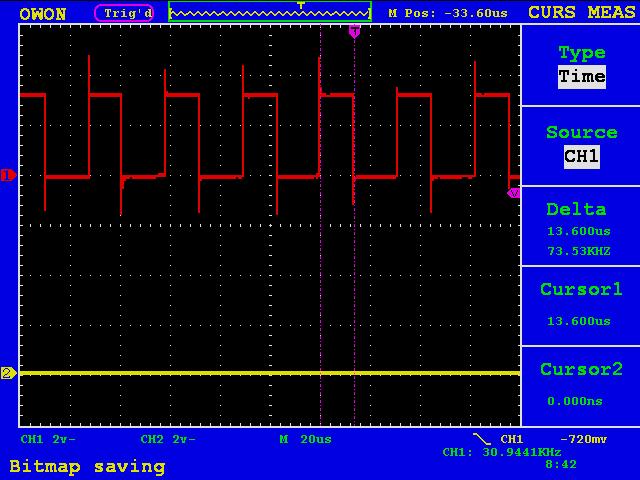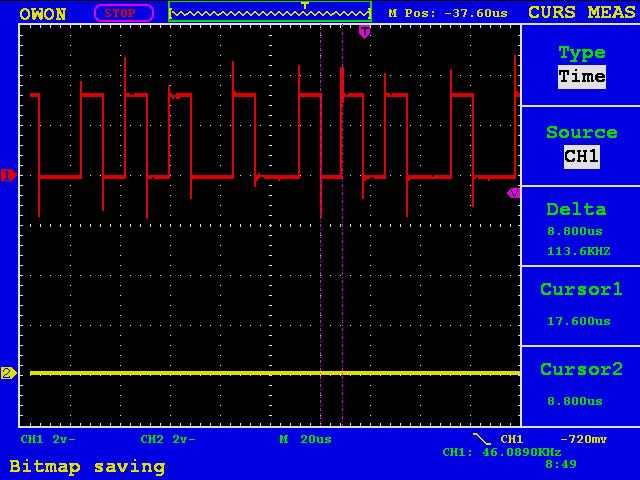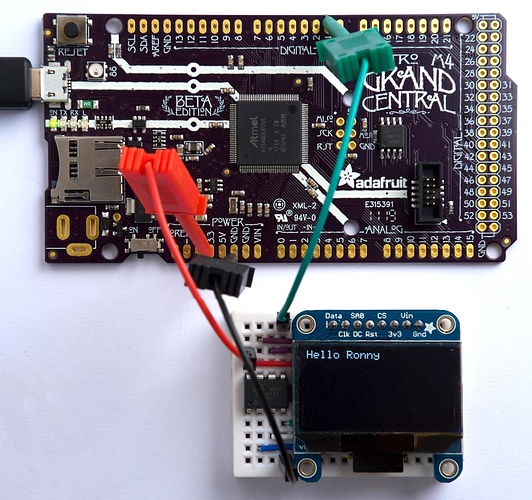Hi ,
I tried this small test to see signals on serial1 :
(defun test () (with-serial (str 1) (loop (write-byte 42 str))))
This should output ‘*’ continuously to serial1.
However nothing happens , just the pin goes from low to high.
If I upload a simple arduino sketch , than it works , so no board malfunction.
void (setup)
{
serial1.begin(115200);
}
void (loop)
{
Serial1.write('*');
}
What could be the problem here ?
Kind regards
Ronny



